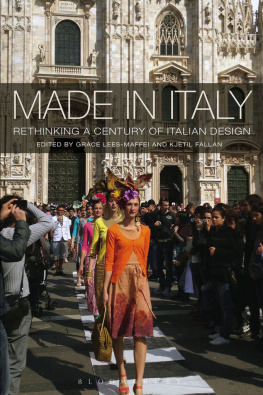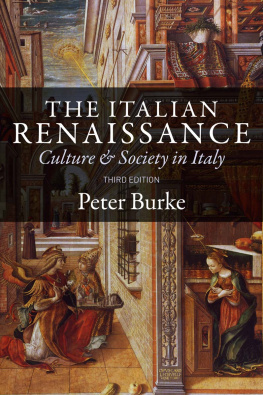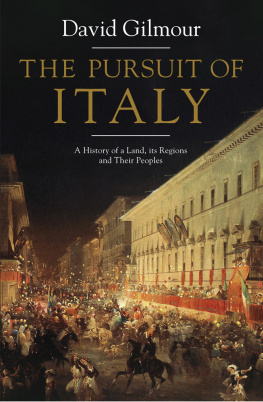The Nation of the Risorgimento
This book is a translation of La Nazione del Risorgimento , one of the most important and influential works on modern Italian history published in recent years. It analyses the aspects of the ideas of nationhood and patriotism that impassioned and energized the Italian Risorgimento movement during the first half of the nineteenth century. Employing an innovative interdisciplinary approach that examines the cultural production and consumption of the period, the author has challenged the orthodoxies of post-1945 Italian historiography. He explores the developing themes that gave strength to the idea of the Italian nation, and in the process persuasively explains why so many young men and women were willing to lay down their lives for the patria and its independence.
Alberto Mario Banti is Full Professor of Cultural History at the University of Pisa. His research has been devoted to the study of the idea of nation in nineteenth-century Italy and Europe; to the history of Western mentalities and cultures; and to the analysis of mass culture in twentieth-century USA. His published books include, among others, ros et Vertu. Le corps de femmes de Watteau Manet (2018) and Wonderland. La cultura di massa da Walt Disney ai Pink Floyd (2017).
Routledge Studies in the Modern History of Italy
Edited by Carlotta Ferrara degli Uberti (University College London), Marco Mondini (University of Padua and Italian German Historical Institute-FBK Trent), Silvana Patriarca (Fordham University), and Guri Schwarz (University of Genoa)
The history of modern Italy from the late eighteenth to the twenty-first centuries offers a wealth of dramatic changes amidst important continuities. From occupying a semi-peripheral location in the European Mediterranean to becoming one of the major economies of the continent, the Peninsula has experienced major transformations while also facing continuing structural challenges. Social and regional conflicts, revolts and revolutions, regime changes, world wars and military defeats have defined its turbulent political history, while changing identities and social movements have intersected with the weight of family and other structures in new international environments.
The series focuses on the publication of original research monographs, from both established academics and junior researchers. It is intended as an instrument to promote fresh perspectives and as a bridge, connecting scholarly traditions within and outside Italy. Occasionally, it may also publish edited volumes. The sole criteria for selection will be intellectual rigour and the innovative character of the books.
It will cover a broad range of themes and methods ranging from political to cultural to socio-economic history with the aim of becoming a reference point for groundbreaking scholarship covering Italian history from the Napoleonic era to the present.
Recent titles in this series
Mussolinis Camps
Civilian Internment in Fascist Italy (19401943)
Carlo Spartaco Capogreco, translated by Norma Bouchard and Valerio Ferme
The Nation of the Risorgimento
Kinship, Sanctity, and Honour in the Origins of Unified Italy
Alberto Mario Banti, translated by Stuart Oglethorpe
The Nation of the Risorgimento
Kinship, Sanctity, and Honour in the Origins of Unified Italy
Alberto Mario Banti
Translated by Stuart Oglethorpe

First published 2020
by Routledge
2 Park Square, Milton Park, Abingdon, Oxon, OX14 4RN
and by Routledge
52 Vanderbilt Avenue, New York, NY 10017
Routledge is an imprint of the Taylor & Francis Group, an informa business
2020 Alberto Mario Banti
Translated by Stuart Oglethorpe
The right of Alberto Mario Banti to be identified as author of this work has been asserted by him in accordance with sections 77 and 78 of the Copyright, Designs and Patents Act 1988.
All rights reserved. No part of this book may be reprinted or reproduced or utilised in any form or by any electronic, mechanical, or other means, now known or hereafter invented, including photocopying and recording, or in any information storage or retrieval system, without permission in writing from the publishers.
Trademark notice : Product or corporate names may be trademarks or registered trademarks, and are used only for identification and explanation without intent to infringe.
British Library Cataloguing-in-Publication Data
A catalogue record for this book is available from the British Library
Library of Congress Cataloging-in-Publication Data
Names: Banti, Alberto Mario, 1957- author. | Oglethorpe, Stuart, translator.
Title: The nation of the Risorgimento: kinship, sanctity, and honour in the origins of unified Italy / Alberto Mario Banti, [translated by] Stuart Oglethorpe.
Other titles: Nazione del Risorgimento. English
Description: New York: Routledge, 2020. | Series: Routledge studies in the modern history of italy | Includes bibliographical references and index.
Identifiers: LCCN 2019058423 (print) | LCCN 2019058424 (ebook) | ISBN 9780367429416 (hardback) | ISBN 9781003000297 (ebook)
Subjects: LCSH: ItalyHistory1849-1870Historiography.
Classification: LCC DG552.6 .B3613 2020 (print) | LCC DG552.6 (ebook) | DDC 945/.083072dc23
LC record available at https://lccn.loc.gov/2019058423
LC ebook record available at https://lccn.loc.gov/2019058424
ISBN: 978-0-367-42941-6 (hbk)
ISBN: 978-1-003-00029-7 (ebk)
Typeset in Times
by Deanta Global Publishing Services, Chennai, India
Contents
It is always strange to talk about oneself at the start of a book that has nothing autobiographical about it, and even stranger to do this by talking about the self of some years ago. However, this is what is required when presenting the translation of a book that first appeared in Italian in 2000. Since then, La nazione del Risorgimento has generated various reactions: perplexity in some cases, especially among Italian Risorgimento scholars of a more traditional orientation; gratifying appreciation in some other cases, with reverberations beyond Italys borders. It will be more useful to note, in summary fashion, the more important conclusions of this research.
The task that I had set myself was to describe the way in which Risorgimento activists of the most varied political orientation understood the concept of nation. I did this by employing the tools of cultural history, leading me to identify three fundamental deep images, which were heralded in the books subtitle.
The first is the image of kinship. It was precisely through reference to such a simple and easily understandable image that one of the essential ways of framing the national discourse developed. Imagining the nation as a kinship system a web of relationships that stretches back towards past generations, operates in the present for members of the community, and reaches forward to the generations of the future has two essential implications. First, it means that the nation is imagined as a community by descent, endowed with its own specific historical past. Second, it means that great emphasis is placed on the importance of biological ties as the cement of the national community; this explains the frequent recourse to terms such as razza , stirpe , and sangue (race, stock, and blood) to illustrate the type of relationship that connects members of the same national community to each other. With this in mind, we can also see why the national discourse was expressed through the systematic use of vocabulary that referred to the sphere of the family: national territory was the madre-patria (mother-fatherland); the movements leaders were the padri della patria (fathers of the fatherland); and the national community consisted of fratelli and sorelle (brothers and sisters).

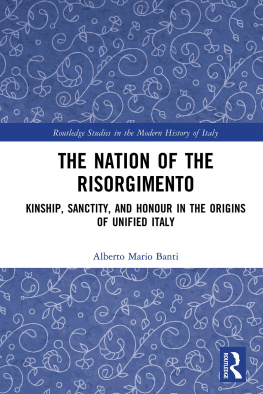
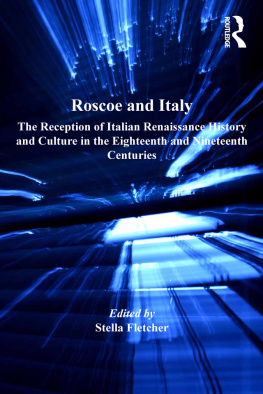
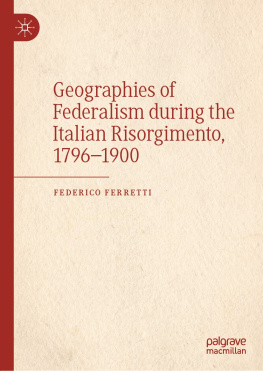
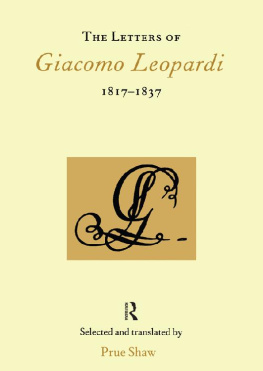
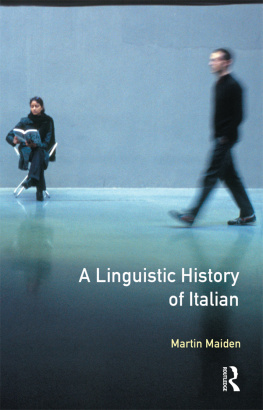
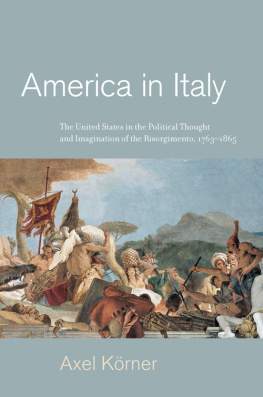
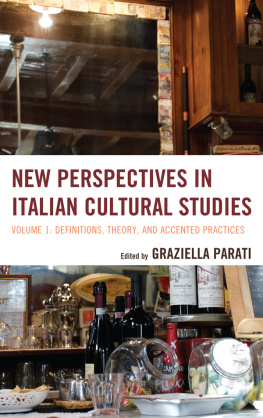
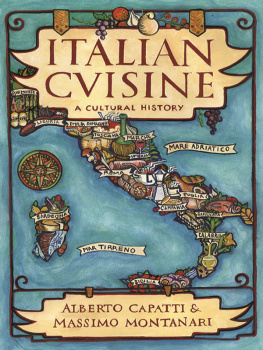
![Bosworth - Italian Venice: a history[Electronic book]](/uploads/posts/book/194557/thumbs/bosworth-italian-venice-a-history-electronic.jpg)
